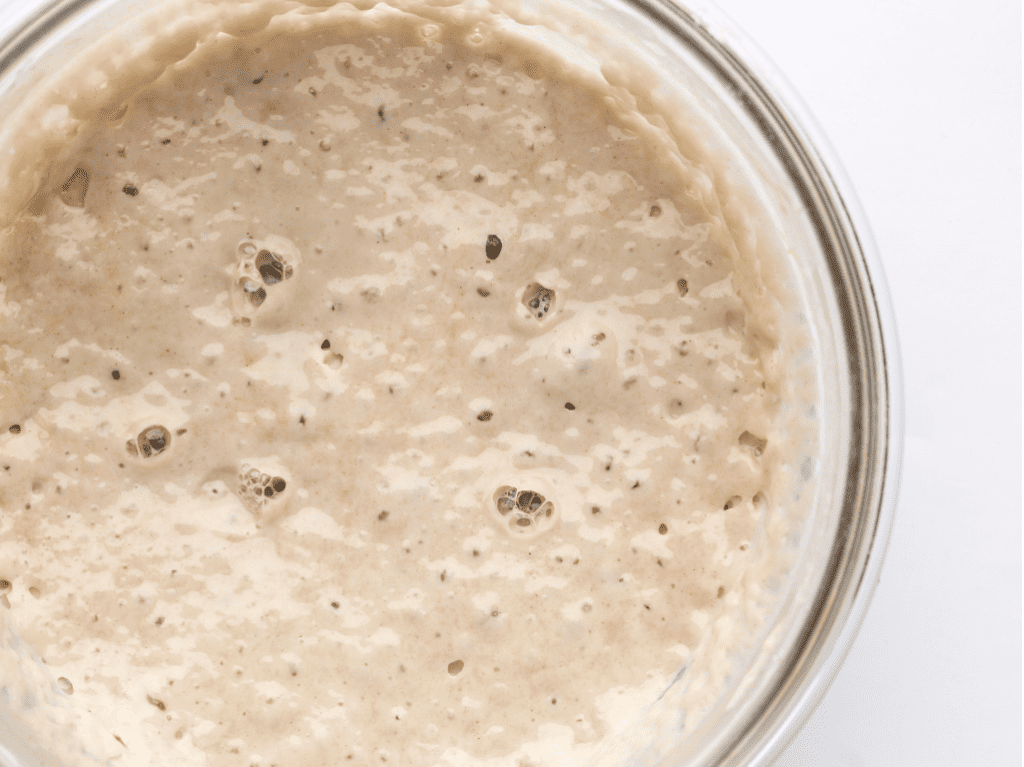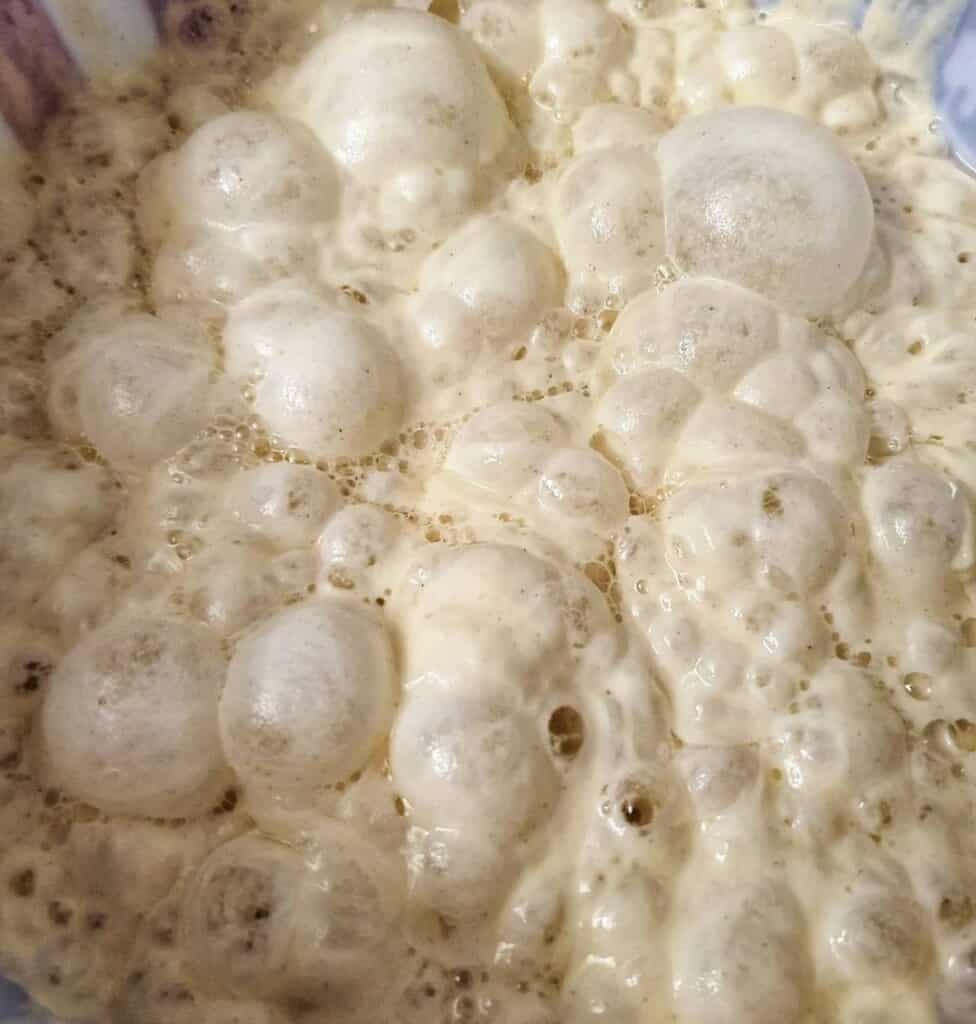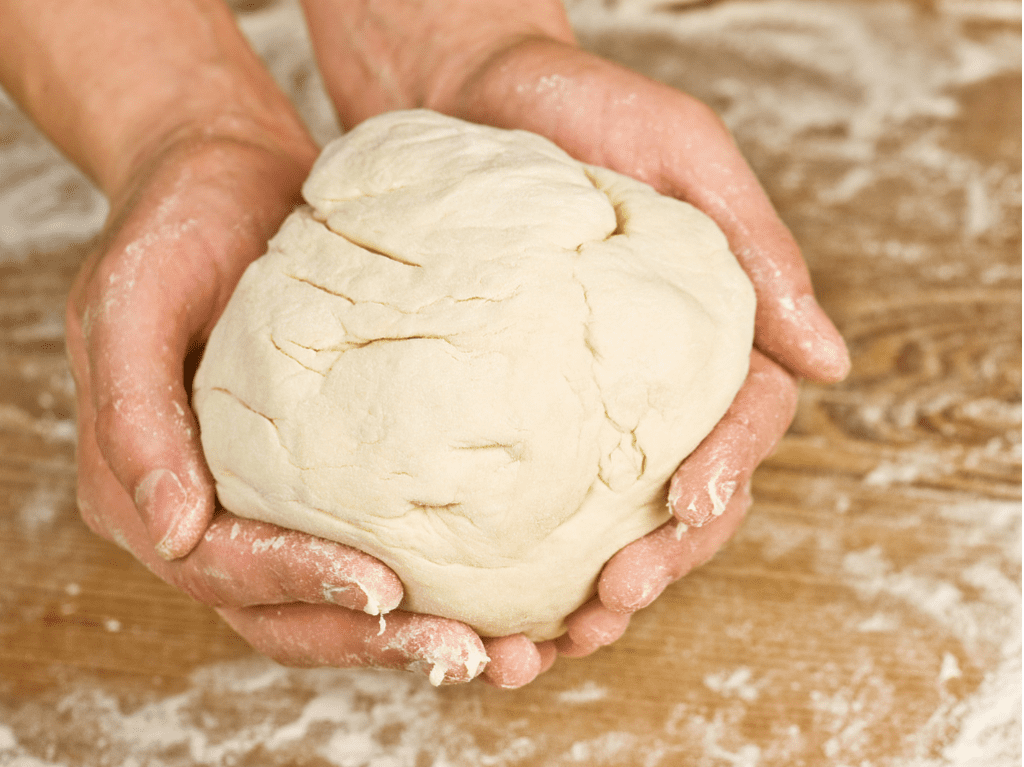When looking for a good sourdough starter, it can be hard to know where to look or even what to look for. You hear stories of starters passed down through bloodlines, like an inheritance, and you see aged starters at the artisanal bakeries near you, but you don’t know what makes a good starter.
While different in texture – more like a wet sponge than a dough – poolish is just another version of a sourdough starter. But unlike poolish, the starter is made with natural yeast rather than yeast from a store. A starter is a fairly simple thing, usually made of wheat flour, a leavening agent like yeast and water.

I’m going to be using words such as biga and poolish, which sound more like typos than words, but are actually French and Italian baking terms. In this post, I’ll discuss the benefits of using poolish and how to properly use it with yeast.
Is Poolish the Same as Sourdough Starter?
Pre-ferments such as poolish have a way of making breads fragrant, more aromatically appealing and soft. Breads made with pre-ferments also keep longer than traditional starter-based sourdoughs.
Starter and poolish are made of the same things – just water, flour and yeast – but it’s made in two stages. You have to make the poolish before mixing it into dough. The big difference between starters and poolish concerns the length of time you must wait to use it.
This is common in indirect baking – you have to make the poolish, then ingredients are added to its yeast-base. But the more yeast put into the poolish, the longer you are going to be stuck waiting for it to be ready for use.
How much poolish you include in the dough can vary, but the general rule of thumb is one-third the amount of flour you use.
The Difference Between Poolish and Biga
At stores and online, you’ll often see poolish and biga very close to one another. I did, and I had no clue which one was better, or if it even made a difference. Turns out there are some differences worth mentioning between the two that can help guide your decision.
How is Biga Different?
You can notice the difference with biga right away by looking at it. It’s a much more solid pre-ferment than poolish, which has a spongy look. It also takes much longer to ferment.
Biga can take anywhere from 16 to 48 hours to be ready for use. You always want to be sure to complement biga with high-quality flour, as it’s a very rough dough that requires attentive temperature control.
That said, it’s ideal for larger loaves of bread and pizzas. It may take some time and patience to put together, but the payoff is worth the work.
How To Make a Poolish Starter

Due to its 100 percent hydration, poolish is mostly liquid.
To properly make poolish, start with:
- 50g flour
- 5g active yeast
- 550ml water, heated to about 176 degrees fahrenheit
Mix the flour and yeast together well while you’re heating the water. Then, pour the water over the mix.
Cover the poolish with a lid and let it sit at room temperature for about 10 hours to a full day. It should look spongy, full of bubbles.
How to Make Poolish Dough

Here’s what you’ll need to make dough now that your poolish starter is ready:
- 550g whole wheat flour
- 150g bread flour
- 25g salt
- 4g active yeast
Mix the ingredients together. Pour some hot water over both the mix and the poolish to loosen it, then mix the two together. As previously mentioned, you should only use about one-third of the amount of flour in the dough mix.
Make sure the dough is mixed well with the poolish, then let it sit for about 20 minutes. For the first hour, fold the dough every twenty minutes. Cover with a lid and let it sit for no more than three hours. It should have at least tripled in size.
Preheat a baking sheet or a stone to 500 degrees fahrenheit. Put a pan in the bottom rack of your oven with some ice cubes to simulate a steam effect.
Bake the dough for about an hour.
Let the dough cool for a little while, then get ready to enjoy some of the softest, fluffiest dough you’ve ever made.